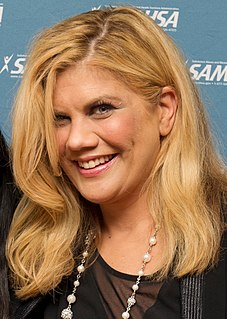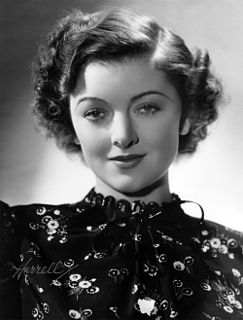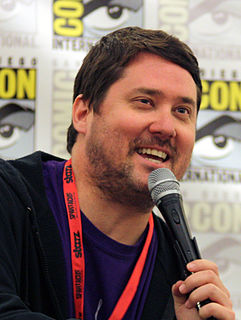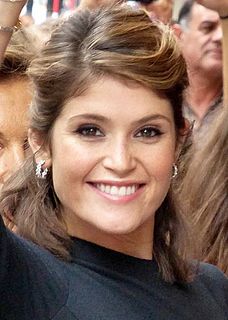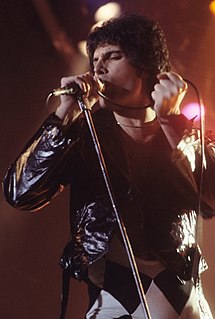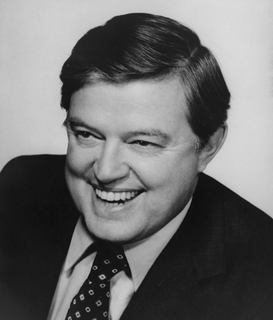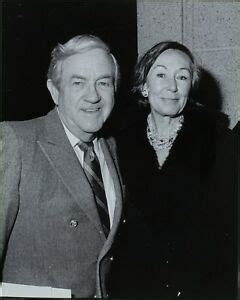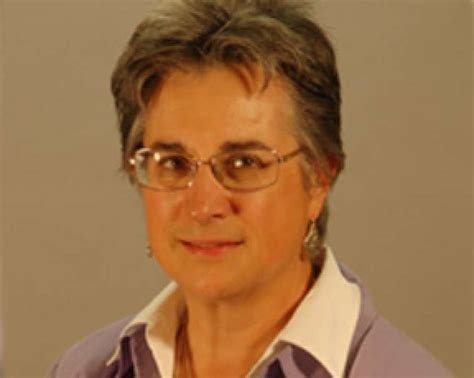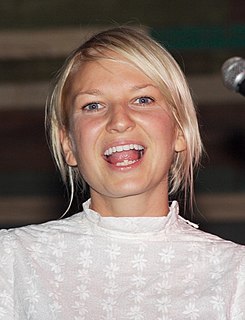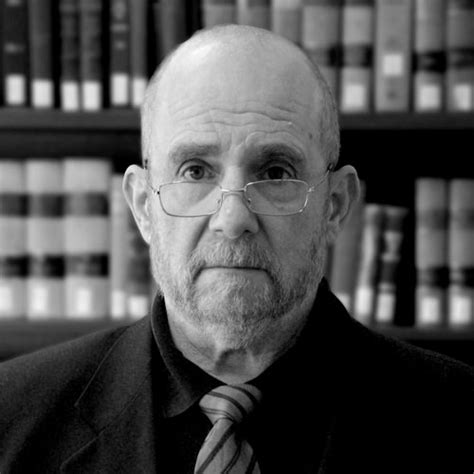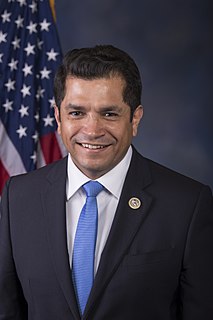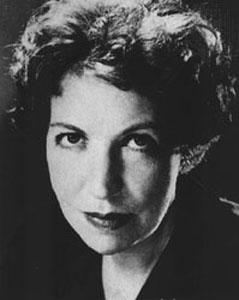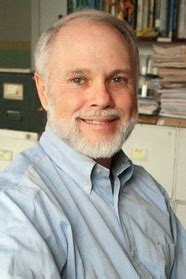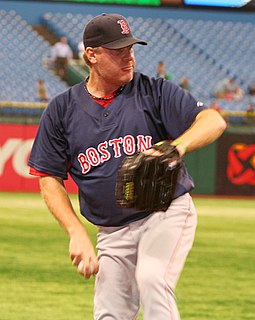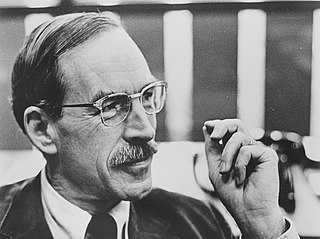Top 1200 Privacy Quotes & Sayings - Page 20
Explore popular Privacy quotes.
Last updated on December 11, 2024.
A: Snowden has enough information to cause more damage to the US government in a minute alone than anyone else has ever had in the history of the United States. But that's not his goal. [His] objective is to expose software that people around the world use without knowing what they are exposing themselves without consciously agreeing to surrender their rights to privacy. [He] has a huge number of documents that would be very harmful to the US government if they were made public.
[Bill] Binney will argue with you all day about ThinThread, but his idea was that it would collect everything about everybody but be immediately encrypted so no one could read it. Only a court could give intelligence officials the key to decrypt it. The idea was to find a kind of a compromise between [privacy rights and] the assertion that if you don't collect things as they happen, you won't have them later - because what the NSA really wants is the capability of retrospective investigation.
I did not understand that she was hiding her feelings under irony, that this is usually the last refuge of modest and chaste-souled people when the privacy of their soul is coarsely and intrusively invaded, and that their pride makes them refuse to surrender till the last moment and shrink from giving expression to their feelings before you. to have guessed the truth from the timidity with which she had repeatedly approached her sarcasm, only bringing herself to utter it at last with an effort.
While the machinery of law enforcement and indeed the nature of crime itself have changed dramatically since the Fourth Amendment became part of the Nation's fundamental law in 1791, what the Framers understood then remains true today - that the task of combating crime and convicting the guilty will in every era seem of such critical and pressing concern that we may be lured by the temptations of expediency into forsaking our commitment to protecting individual liberty and privacy.
I guess I've done a lot of different kinds of performing at various times - opera singing, poetry reading, not least high school teaching - and I do enjoy it, at least sometimes. But I find it incredibly anxiety-producing and exhausting. Privacy is more congenial, and I go a little crazy if I can't spend a big chunk of every day, or almost every day, alone. Certainly I have to be alone to write.
Having placed in my mouth sufficient bread for three minutes' chewing, I withdrew my powers of sensual perception and retired into the privacy of my mind, my eyes and face assuming a vacant and preoccupied expression. I reflected on the subject of my spare-time literary activities. One Beginning and one ending for a book was a thing I did not agree with. A good book may have three openings entirely dissimilar and inter-related only in the prescience of the author, or for that matter one hundred times as many endings.
Doubt not, O poet, but persist. Say 'It is in me, and shall out.' Stand there, balked and dumb, stuttering and stammering, hissed and hooted, stand and strive, until at last rage draw out of thee that dream-power which every night shows thee is thine own; a power transcending all limit and privacy, and by virtue of which a man is the conductor of the whole river of electricity.
I think it became blurry because I grew up in a very private family. I mixed privacy and secrecy up somewhere along the line. Everything became a secret, and I thought that was how you should live. Lying about everything. The mask I put on as a kid to survive was the funny lady. Then the funny person all of a sudden became harder to do without substances. Substances let me keep the mask on longer. Until it doesn't work anymore and you're just a mess.
I admire some of the people on the screen today, but most of them look like everybody else. In our day we had individuality. Pictures were more sophisticated. All this nudity is too excessive and it is getting very boring. It will be a shame if it upsets people so much that it brings on the need for censorship. I hate censorship. In the cinema there's no mystery. No privacy. And no sex, either. Most of the sex I've seen on the screen looks like an expression of hostility towards sex.
I don't believe anybody has a right to own any kind of a firearm. I believe in order to obtain a permit to own a firearm, that person should undergo an exhaustive criminal background check. In addition, an applicant should give up his right to privacy and submit his medical records for review to see if the person has ever had a problem with alcohol, drugs or mental illness... The Constitution doesn't count!
I would like people to be more aware of the fact that ultimately we are paying for things, and it's not just as privacy advocates point out that we're paying with our time and our data. We're also paying with money, because the hundreds of billions of dollars spent on advertising is just factored into the cost of the goods that we buy. It's all coming out of our pocket, just in a really roundabout way.
Pot advocates actually try to convince people who don't need or want medical marijuana to go get a card, because as those numbers go up, it's like voting for an initiative. It's saying "There are this many people who want to use this who are not getting in trouble, who are not turning around and selling it or giving it to minors." No matter what they have - cancer, HIV, depression - anybody who says they feel better after smoking marijuana, I feel they should be able to do so, especially if it's in the privacy of their own home.
The violence in New York feels really mundane and banal to me. Whereas in the privacy of one's own home, say, like the farm I grew up on in Vermont, the kinds of things that can happen seem much more extreme. Maybe because it's more personal. Or maybe because you block out the things that happen in the city. But it's like seeing things born, live, die, fall apart, and start over again, without any intermediary clean-up steps from some corporate organization.
The Library didn't only contain magical books, the ones which are chained to their shelves and are very dangerous. It also contained perfectly ordinary books, printed on commonplace paper in mundane ink. It would be a mistake to think that they weren't also dangerous, just because reading them didn't make fireworks go off in the sky. Reading them sometimes did the more dangeous trick of making fireworks go off in the privacy of the reader's brain.
I want to make sure to fix these obvious things - like keeping the box CLEAN! Another thing that might affect this [cats going outside the litter box] is if you put the litter box in a laundry room where people are walking by there all the time, the cat might feel kinda too exposed. When you gotta poop, you know, it takes a little longer. You want a little more privacy.
There is no hate without fear. Hate is crystallized fear, fear's dividend, fear objectivized. We hate what we fear and so where hate is, fear is lurking. Thus we hate what threatens our person, our liberty, our privacy, our income, our popularity, our vanity and our dreams and plans for ourselves. If we can isolate this element in what we hate we may be able to cease from hating... Hate is the consequence of fear; we fear something before we hate; a child who fears noises becomes the man who hates them.
Taking somebody's money without permission is stealing, unless you work for the IRS; then it's taxation. Killing people en masse is homicidal mania, unless you work for the Army; then it's National Defense. Spying on your neighbors is invasion of privacy, unless you work for the FBI; then it's National Security. Running a whorehouse makes you a pimp and poisoning people makes you a murderer, unless you work for the CIA; then it's counter-intelligence.
In London I'm out and about all the time. I walk everywhere, so people do recognise me and they've probably seen me before so they're not bothered anymore. But I think that's a good thing because if you try and remain mysterious people are surprised when they see you. With me, I think they're just bored of seeing me - but that suits me just fine because I like to live as much of a normal life as I can. That's why I love living in London. People are very respectful of your privacy. If they see you having a coffee in a coffee shop, they're not going to interrupt you.
Following the enormous conjecture in the press over the last two weeks, I wish to confirm that I have been tested HIV positive and have AIDS. I felt it correct to keep this information private to date to protect the privacy of those around me. However, the time has come now for my friends and fans around the world to know the truth and I hope that everyone will join with my doctor and all those worldwide in the fight against this terrible disease.
The Supreme Court has said that: Marriage is the most important relation in life. Now that's being withheld from the plaintiffs. It is the foundation of society. It is essential to the orderly pursuit of happiness. It's a right of privacy older than the Bill of Rights and older than our political parties. One of the liberties protected by the Due Process Clause. A right of intimacy to the degree of being sacred. And a liberty right equally available to a person in a homosexual relationship as to heterosexual persons.
“Simon,” she whispered, vaguely surprised that she had just used his first name, for she had never used it even in the privacy of her thoughts. Moistening her dry lips, she tried once more, and to her astonishment, she did it again. “Simon…” “Yes?” A new tension had entered his long, hard body, and at the same time, his hand moved over the shape of her skull in the softest caress possible. “Please… take me to my room.” Hunt tilted her head back gently and regarded her with a sudden faint smile playing on his lips. “Sweetheart, I would take you to Timbuktu if you asked.“
The internet is watching us now. If they want to. They can see what sites you visit. In the future, television will be watching us, and customizing itself to what it knows about us. The thrilling thing is, that will make us feel we're part of the medium. The scary thing is, we'll lose our right to privacy. An ad will appear in the air around us, talking directly to us.
There is a marvelous peace in not publishing. It's peaceful. Still. Publishing is a terrible invasion of my privacy. I like to write. I live to write. But I write just for myself and my own pleasure. I don't necessarily intend to publish posthumously, but I do like to write for myself. I pay for this kind of attitude. I'm known as a strange, aloof kind of man. But all I'm doing is trying to protect myself and my work.
Then President [Barack] Obama went on to argue that a citizen`s Second Amendment rights can be restricted without being infringed, just like any other rights. There are limits on your free speech and on your right to privacy. But he also made another nuanced Constitutional argument, that the rights enshrined in the Second Amendment must be balanced alongside the others rights guaranteed by the Constitution.
The National Security Agency’s capability at any time could be turned around on the American people, and no American would have any privacy left, such is the capability to monitor everything: telephone conversations, telegrams, it doesn’t matter. There would be no place to hide. If a dictator ever took over, the N.S.A. could enable it to impose total tyranny, and there would be no way to fight back.
There is a horrifying loneliness at work in this time. No, listen to me. We lived six and seven to a room in those days, when I was still among the living. The city streets were seas of humanity; and now in these high buildings dim-witted souls hover in luxurious privacy, gazing through the television window at a faraway world of kissing and touching. It is bound to produce some great fund of common knowledge, some new level of human awareness, a curious skepticism, to be so alone.
I've been asked to explain why I don't worry much about the topics of privacy threat...One reason is that these scenarios seem to assume that there will be large, monolithic bureaucracies...that are capable of harnessing computers for one-way surveillance of an unsuspecting populace. I've come to feel that computation just doesn't work that way. Being afraid of monolithic organizations especially when they have computers, is like being afraid of really big gorillas especially when they are on fire.
Progress has never been a bargain. You have to pay for it. Sometimes I think there's a man who sits behind a counter and says, "All right, you can have a telephone but you lose privacy and the charm of distance. Madam, you may vote but at a price. You lose the right to retreat behind the powder puff or your petticoat. Mister, you may conquer the air but the birds will lose their wonder and the clouds will smell of gasoline."
He loves me, and I reward his love by forcing on him something he hates. In the evening, after we dance, he rarely returns to the throne; he dances with others or moves from place to place through the room. The court thinks he is trying to be gracious, sharing his attention. Only I see that he moves always to the empty spot and the court always moves after him. He is like a dog trying to escape his own tail. He indulged himself in one brief moment of privacy, and almost died of it. Relius, he hates being king.
A true community consists of individuals - not mere species members, not couples - respecting each others individuality and privacy while at the same time interacting with each other mentally and emotionally - free spirits in free relation to each other - and co-operating with each other to achieve common ends. Traditionalists say the basic unit of "society" is the family; "hippies" say the tribe; noone says the individual.
Social media, it's a minefield! Technology is moving so fast right now. Everyone is scrambling around trying to understand what it means to have an avatar, how to live our lives on the internet, what it means for privacy, for citizens of a political universe. I think that we're trying to find rules now, as we speak, and it's difficult. But, like everything, the internet is an incredibly powerful force that needs governing - not to restrict our freedom, but to protect people.
Confidentiality refers to the boundaries surrounding shared secrets and to the process of guarding these boundaries. While confidentiality protects much that is not in fact secret, personal secrets lie at its core. The innermost, the vulnerable, often the shameful: these aspects of self-disclosure help explain why one name for professional confidentiality has been "the professional secret." Such secrecy is sometimes mistakenly confused with privacy; yet it can concern many matters in no way private, but that someone wishes to keep from the knowledge of third parties.
There are people who are always going to try to engage in activity that is illegal and they're going to try to subvert surveillance. But everybody should not give up their liberties and rights to privacy because some people are going to [do that]. We shouldn't stop or limit our basic liberties because some people are going to engage in criminal activities.
I remember in The Conversation, they brought all these coats to me, and they said: Do you want him to look like a detective, Humphrey Bogart? Do you want him to look like a blah blah blah. I didn't know, and said the theme is 'privacy' and chose the plastic coat you could see through. So knowing the theme helps you make a decision when you're not sure which way to go.
A woman who sets her rights, the supposed right to privacy or right over her own body, above the life of another human being is saying that a woman's rights are superior to human rights. She has put herself above the human race, she has made herself the executor over life and death. Is that a woman's right?
I find the treatment of royalty distinctly peculiar. The royal family lives in palaces heavily screened from prying eyes by fences, grounds, gates, guards, all designed to ensure the family absolute privacy. And every newspaper in London carried headlines announcing PRINCESS ANNE HAS OVARIAN CYST REMOVED. I mean you're a young girl reared in heavily guarded seclusion and every beer drinker in every pub knows the precise state of your ovaries.
I believe there is a limit beyond which free speech cannot go, but it's a limit that's very seldom mentioned. It's the point where free speech begins to collide with the right to privacy. I don't think there are any other conditions to free speech. I've got a right to say and believe anything I please, but I haven't got a right to press it on anybody else. .... Nobody's got a right to be a nuisance to his neighbors.
We believe we're moving out of the Ice Age, the Iron Age, the Industrial Age, the Information Age, to the participation age. You get on the Net and you do stuff. You IM (instant message), you blog, you take pictures, you publish, you podcast, you transact, you distance learn, you telemedicine. You are participating on the Internet, not just viewing stuff. We build the infrastructure that goes in the data center that facilitates the participation age. We build that big friggin' Webtone switch. It has security, directory, identity, privacy, storage, compute, the whole Web services stack.
Pornography reveals that male pleasure is inextricably tied to victimizing, hurting, exploiting; that sexual fun and sexual passion in the privacy of the male imagination are inseparable from the brutality of male history. The private world of sexual dominance that men demand as their right and their freedom is the mirror image of the public world of sadism and atrocity that men consistently and self-righteously deplore. It is in the male experience of pleasure that one finds the meaning of male history.
When people say, "Show your face, you're not ugly." I want to say, "I know. I'm not doing it because I think I'm ugly; I'm trying to have some control over my image. And I'm allowed to maintain some modicum of privacy. But also I'd like not to be picked apart or for people to observe when I put on ten pounds or I have a hair extension out of place." Most people don't have to be under that pressure, and I'd like to be one of them. I don't go on Twitter. Because when people say things like, I don't know, "I hope you get cancer and die," it hurts my feelings.
When oranges came in, a curious proceeding was gone through. Miss Jenkyns did not like to cut the fruit, for, as she observed, the juice all ran out nobody knew where, sucking [only I think she used some more recondite word] was in fact the only way of enjoying oranges; but then there was the unpleasant association with a ceremony frequently gone through by little babies; and so, after dessert, in orange season, Miss Jenkyns and Miss Matty used to rise up, possess themselves each of an orange in silence, and withdraw to the privacy of their own rooms to indulge in sucking oranges.
No-knock police raids destroy Americans' right to privacy and safety. People's lives are being ruined or ended as a result of unsubstantiated assertions by anonymous government informants. ... Unfortunately, no-knock raids are becoming more common as federal, state, and local politicians and law enforcement agencies decide that the war on drugs justified nullifying the Fourth Amendment. ... No-knock raids in response to alleged narcotics violations presume that the government should have practically unlimited power to endanger some people's lives in order to control what others ingest.
Gun control laws don't work. What is worse, they act perversely. While legitimate users of firearms encounter intense regulation, scrutiny and bureaucratic control, illicit markets easily adapt to whatever difficulties a free society throws in their way. Also, efforts to curtail the supply of firearms inflict collateral damage on freedom and privacy interests that have long been considered central to American public life.
How do men feel whose whole lives (and many men's lives are) are lies, schemes, and subterfuges? What sort of company do they keep when they are alone? Daily in life I watch men whose every smile is an artifice, and every wink is an hypocrisy. Doth such a fellow where a mask in his own privacy, and to his own conscience?
Police have both extra constraints and extra permissions - on the one hand, they can't dodge involvement in social disorder as the rest of us can and they may be required to conduct themselves privately in a way that does not undermine their public authority; on the other hand, they have permission to engage in deceptions, invasions of privacy and uses of force that are forbidden to the rest of us. But this does not put them beyond common morality.
Nobody needs to justify why they "need" a right: the burden of justification falls on the one seeking to infringe upon the right. But even if they did, you can't give away the rights of others because they're not useful to you. More simply, the majority cannot vote away the natural rights of the minority. Arguing that you don't care about the right to privacy because you have nothing to hide is no different than saying you don't care about free speech because you have nothing to say.
I don't think poetry needs to be "easily understandable." First of all, there are often complexities of syntax, form, unfamiliar absences, etc., that require a deeper concentration than is usually demanded of us. So that, right off the bat, is a little difficult. Then there is the deeper issue of what poetry is really asking of us. I feel it is asking us to read with great, even sacred, care and attention. That, too, is difficult. It requires discipline and the creation of a temporary zone of privacy, which is inimical to our current conditions of life.
All people make mistakes. All of us are sinners. All of us are criminals. All of us violate the law at some point in our lives. In fact, if the worst thing you have ever done is speed ten miles over the speed limit on the freeway, you have put yourself and others at more risk of harm than someone smoking marijuana in the privacy of his or her living room. Yet there are people in the United States serving life sentences for first-time drug offenses, something virtually unheard of anywhere else in the world.
Formerly, many men dominated women within marriage. Now, despite a much wider acceptance of women as workers, men dominate women anonymously outside the marriage. Patriarchy has not disappeared; it has changed form. In the old form, women were forced to obey an overbearing husband in the privacy of an unjust marriage. In the new form, the working single mother is economically abandoned by her former husband and ignored by a patriarchal society at large.
Even when I was young I wanted to be an actress. I knew the actors and the paparazzi. It was just kind of always in my landscape. It was never directed at me, but it was always somewhere so I could see how it operated and I could see it from afar and go 'Wow, that's not really glamorous, it's kind of exhausting not having any privacy.' So it was never something I pursued. The first time I saw the billboard for Pretty Little Liars I almost got into a car accident!
if I believed that the choice lay between a sacrifice of the completest order of biography and that of the inviolability of private epistolary correspondence, I could not hesitate for a moment. I would keep the old and precious privacy,-the inestimable right of every one who has a friend and can write to him, - I would keep our written confidence from being made biographical material, as anxiously as I would keep our spoken conversation from being noted down for the good of society.
Who could deny that privacy is a jewel? It has always been the mark of privilege, the distinguishing feature of a truly urbane culture. Out of the cave, the tribal teepee, the pueblo, the community fortress, man emerged to build himself a house of his own with a shelter in it for himself and his diversions. Every age has seen it so. The poor might have to huddle together in cities for need's sake, and the frontiersman cling to his neighbors for the sake of protection. But in each civilization, as it advanced, those who could afford it chose the luxury of a withdrawing-place.
The language of commerce has been engineered to describe the overt purpose of a thing, but cannot encompass fringe benefits or peripheral pleasures. It weighs the obvious against what in its terms are incomprehensible. When I drive from here to there, speed, privacy, control, and safety are easy to claim. When I walk, what happens is more vague, more ambiguous-and in many circumstances much richer. I am out in the world. It's exercise, though not so quantifiably as on a treadmill in a gym with a digital readout.
One thing I like about writing is that it provides such a wonderful opportunity for confidential chats with readers. In the privacy of writing, and reading, we can discuss topics that are a little touchy, a bit embarrassing, and feel less alone in the process. Feeling consumed by memories from high school. Feeling wimpy. Feeling time-obsessed. Yearning for our fathers. Wishing we were taller, or shorter, or less average. To name just a few.
The most important to me is, Theo is a good person first and foremost. And I think that has a lot to do with it. He's not deceitful. He's an honest guy, a good guy. There's a lot more to this thing than it being a job for him, being born and raised here, the Red Sox being as important as they are to him. Above all else, Theo understands he's a compromiser. Theo understands that the clubhouse is our home. He doesn't invade that privacy often. When he does, he doesn't make you uncomfortable and that says as much about him as anything.
The Library is an open sanctuary. It is devoted to individual intellectual inquiry and contemplation. Its function is to provide free access to ideas and information. It is a haven of privacy, a source of both cultural and intellectual sustenance for the individual reader. Since it is thus committed to free and open inquiry on a personal basis, the Library must remain open, with access to it always guaranteed.
The great end of prudence is to give cheerfulness to those hours which splendour cannot gild, and acclamation cannot exhilarate; those soft intervals of unbended amusement, in which a man shrinks to his natural dimensions, and throws aside the ornaments or disguises which he feels in privacy to be useless incumbrances, and to lose all effect when they become familiar. To be happy at home is the ultimate result of all ambition, the end to which every enterprise and labour tends, and of which every desire prompts the prosecution.








